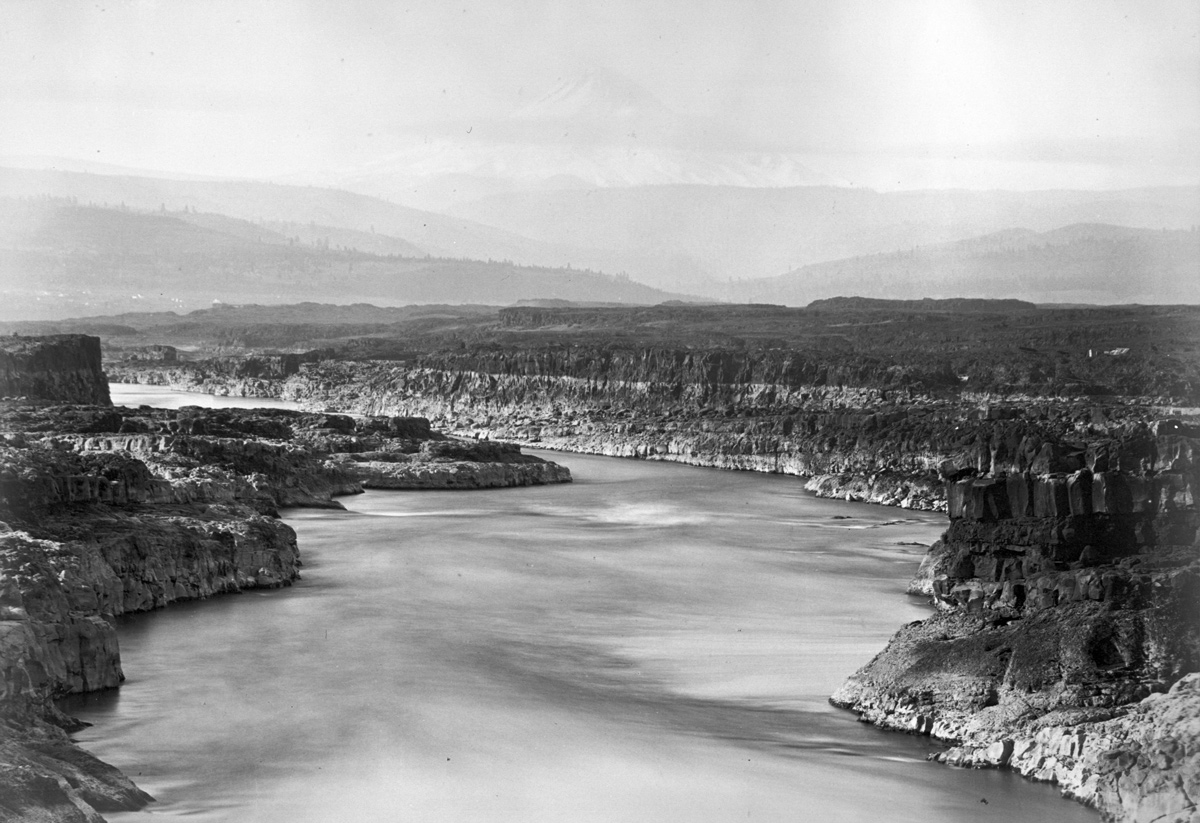All hands spend the day portaging the Long Narrows of the Columbia River. The last big kettles are traded for horses, and the Indians celebrate the start of the spring salmon run. In the evening, Clark and a few others move up to a Tenino village to trade for horses.
The Salmon are Coming!
by Yellowstone Public Radio[1]Originally aired weekdays by Yellowstone Public Radio during the Bicentennial observance of 2003-2006. Narrated by Hal Hansen. Scripts by Whit Hansen and Ed Jacobson. Produced by Leni Holliman. © … Continue reading
Portaging the Long Narrows
This morning early we had our small canoes drawn out, and employed all hands in transporting our baggage on their back and by means of four pack horses, over the portage. This labour we had accomplished by 3 P.M. and established our camp a little above the present Skil-lute village
—Meriwether Lewis
First Salmon Ceremony
there was great joy with the natives last night in consequence of the arrival of the salmon; one of those fish was caught; this was the harbinger of good news to them. they informed us that these fish would arrive in great quantities in the course of about 5 days. this fish was dressed and being divided into small peices was given to each child in the village. this custom is founded in a supersticious opinion that it will hasten the arrival of the salmon.
—Meriwether Lewis
Kettles for Horses
with much difficulty we obtained four other horses from the Indians today, we wer obliged to dispence with two of our kettles in order to acquire those. we have now only one small kettle to a mess of 8 men.
—Meriwether Lewis
Guarding Horses
I directed the horses to be hubbled & suffered to graize at a little distance from our camp under the immediate eye of the men who had them in charge. one of the men Willard was negligent in his attention to his horse and suffered it to ramble off; it was not to be found when I ordered the others to be brought up and confined to the picquits. this in addition to the other difficulties under which I laboured was truly provoking. I repremanded him more severaly for this peice of negligence than had been usual with me.
—Meriwether Lewis
Moving to a Tenino village
as we had not a Sufficiency of horses to transport our baggage we agreed that I should proceed on to the Enesher villages at the great falls of the Columbia and if possible purchase as maney horses as would transport the baggage from that place, and rid us of the trouble and dificuelty of takeing our Canoes further.
—William Clark
Weather Diary
State of weather at rise
Wind at rise
State of the weather at 4 P.M. Wind at 4 P.M. River cloudy after rain S W cloudy S. W. fallen 3 in. raind, moderate showers, very cold snow on the tops of the low hills
—Meriwether Lewis[2]To assist the reader of this web page, the date column is not presented, the “State of the Columbia River” columns have been merged, and some abbreviations have been spelled out.
Notes
| ↑1 | Originally aired weekdays by Yellowstone Public Radio during the Bicentennial observance of 2003-2006. Narrated by Hal Hansen. Scripts by Whit Hansen and Ed Jacobson. Produced by Leni Holliman. © 2003 by Yellowstone Public Radio. |
|---|---|
| ↑2 | To assist the reader of this web page, the date column is not presented, the “State of the Columbia River” columns have been merged, and some abbreviations have been spelled out. |


